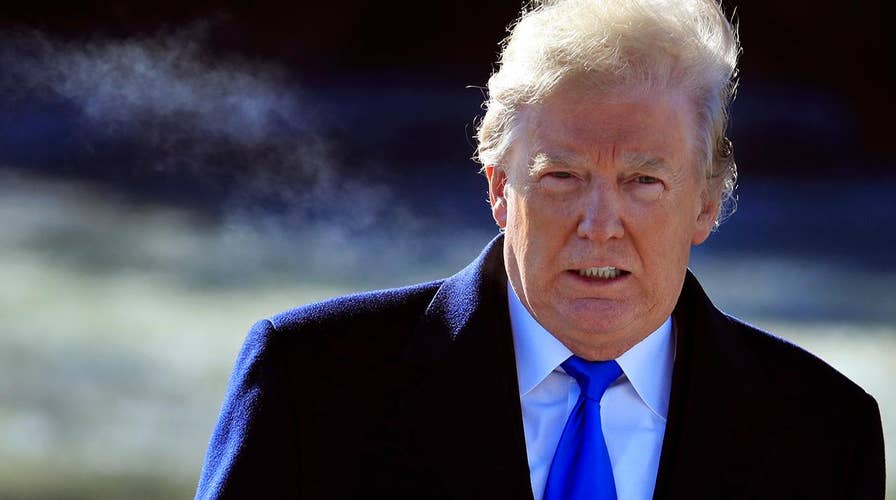Will 2018 be the year of Trump's trade war?
On 'Journal Editorial Report,' the U.S. Chamber of Commerce's John Murphy weighs in on the key deadlines looming.
President Trump was right to impose tariffs this week to fight back against unfair trade practices by countries like China, Mexico and South Korea. This is likely the first of several big changes to the global trade order this year.
The new tariffs are a response to Chinese dumping of solar panels in the United States. The Chinese-manufactured panels were sold at below-market prices in order to put American competitors out of business.
Through 2013, China had its state-owned banks make $18 billion in easy, low-interest loans to Chinese solar manufacturers. Beijing also forced local authorities to provide free land and other inducements to its solar companies.
The result was a glut of solar panels being sold at a loss. Soon, most American-based manufacturers of solar panels had declared bankruptcy and laid off workers. Two that remained in business asked the Trump administration for help.
Chinese companies circumvented earlier efforts to stop this unfair practice by moving some manufacturing offshore to places like Mexico, which is why the new tariffs announced by the administration apply worldwide.
The Trump administration also reacted against South Korea for similarly unfair practices related to washing machines. Tariffs on solar modules and washing machines will now be 30 percent and 50 percent, respectively, phased out over time.
Opponents of the trade remedies wasted no time in reacting. Anti-Trump Republican Sen. Ben Sasse of Nebraska said the action amounted to “taxes on families.” China’s commerce ministry said President Trump’s decision to fight back was an “abuse of trade remedy measures.” South Korea’s left-wing government said it would “actively respond to U.S. trade protectionism.”
Expect domestic mavens of free trade to be far shriller in the coming days. But as the plain facts of misconduct by China and other countries prove, we haven’t had “free trade” – even if the global elite uses that label. Instead, we have trade deals and practices that are stacked against the United States, leading in part to a trade deficit that annually exceeds half a trillion dollars.
The Trump administration is likely just warming up. U.S. Trade Representative Robert Lighthizer is conducting a far more significant investigation of China for infringing on American intellectual property.
There can only be one conclusion to this process, which is known as Section 301 for the relevant part of trade law: China’s entire economic model is based on stealing the intellectual property of others to get ahead. American companies wishing to sell goods in China are routinely forced into joint ventures that expropriate their technology.
The only real question is how significant the penalty against China will be. A decision is legally due by August, but may come sooner.
These steps portend a major change in the world order, especially in regard to China. For decades, America’s elite in both political parties has assumed that what it called free trade would liberalize China and prevent it from misbehaving. Instead, the Chinese government has become richer, more authoritarian and more belligerent.
China’s attempted conquest of the South China Sea, massive military buildup and hyper-aggressive political warfare against America and our allies are just some of the manifestations of this reality.
The time has come to pursue genuine fair and equal trade – and with countries that respect our intellectual property. President Trump should keep following through on his campaign promise to penalize China and shift our trade-development focus to countries like Taiwan and India that respect the rule of law.









































